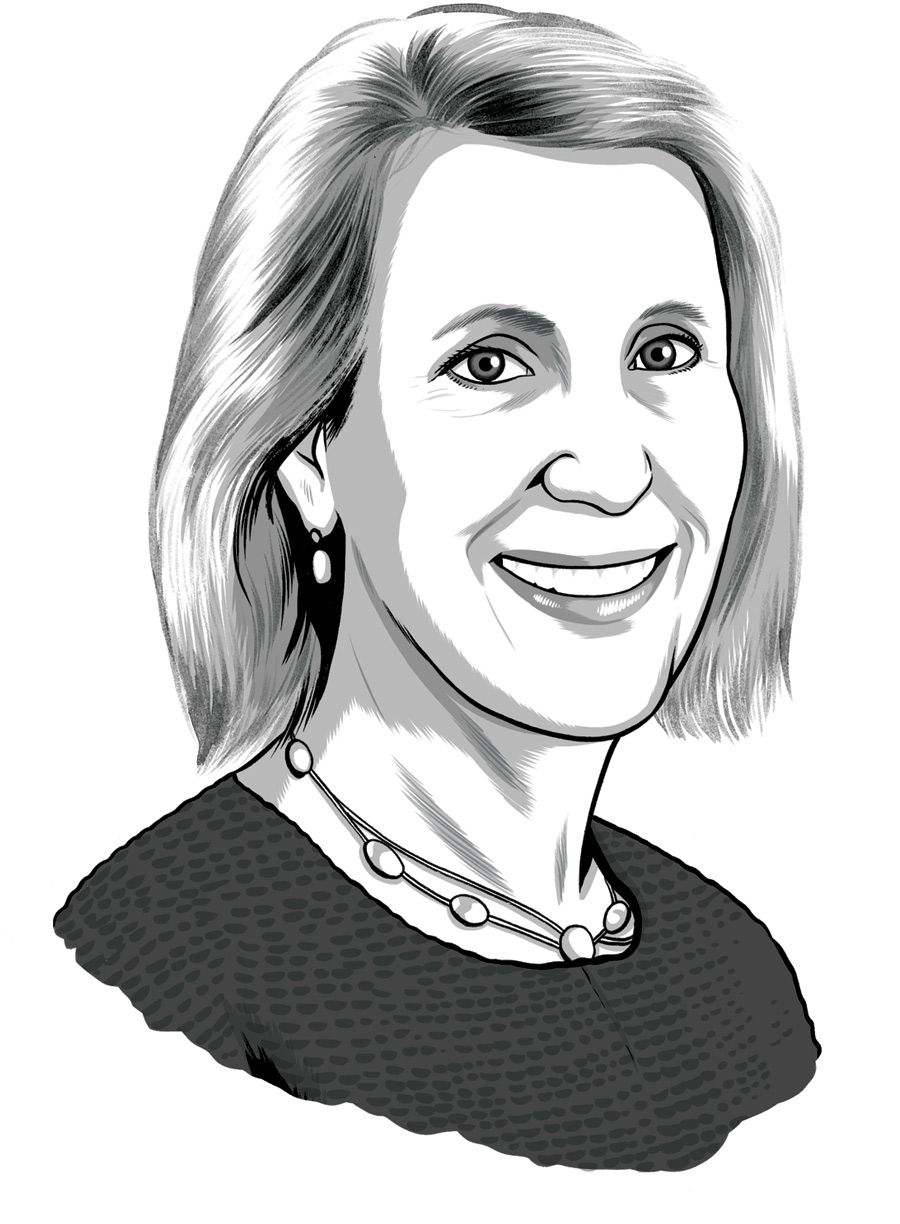

Illustration: Joel Kimmel
Grace Shelton ’84
A Post-to-Post Journey
by Amelia Thomson-DeVeaux
Grace Shelton ’84’s career as a diplomat has taken her all over the world and given her a front-row seat for crucial global transitions and conflicts, most recently as U.S. consul general in Karachi, Pakistan. As she prepared to retire from the State Department at the end of April, we spoke with Shelton about her life as a diplomat.
Q: How did you get into the foreign service?
I have always been interested in international affairs; I majored in it at Bucknell and went to graduate school in international and public affairs before I went to law school, which was when I took the foreign-service exam. At that time the process was very long, so I was out of school and working at a law firm by the time I was offered my first posting. I had always loved travel and immersing myself in other cultures, and really wanted an opportunity to serve my country. So I jumped at the chance.
Q: What were some of your most interesting and challenging postings?
When I got to my first posting in Kuala Lumpur, Malaysia, it was quite a while after the Vietnam War had ended, but there were still refugees from the war waiting to go to the United States, so I got to go to the refugee camps and talk to them and hear their stories. It was really quite a privilege. Later, I was the director of the office that manages the Central Asian states: Turkmenistan, Kyrgyzstan, Kazakhstan, Uzbekistan, Tajikistan. These are strategically important countries, and they have resources like oil and gas. One role was to serve as a counterbalance in the region to Russia and China, but we also wanted to promote trade and mutual cooperation. This is a slow process — I think that’s one of the biggest challenges in diplomacy. Nothing ever happens quickly.
Q: What was your role as U.S. consul general in Karachi?
In Pakistan, the ambassador is in Islamabad, and then there are consulates general in three cities, including Karachi. Karachi is the economic hub of Pakistan, so I was doing a lot of work to promote American exports and build a strong economic relationship. And then of course Pakistan borders Afghanistan, so we were working a lot with law enforcement on counter- terrorism measures. But I would also meet with high-school students to discuss issues like education, and especially what we could do to support women in education and entrepreneurship.
Q: What was it like to be a female diplomat, both in Karachi and across your career?
It was important for me to be a role model and to highlight the importance of women’s contributions. I was the first female consul general in Bermuda, and when I was choosing art for the residence, I deliberately selected all living female artists to honor that milestone. When I was in Pakistan, I would go to meetings, and there would just be a sea of men. So I would ensure that our guest list at events was always at least 40 percent women, to show that there can and should be mixing. It was sometimes difficult to be at events where I was one of the only women, but I never felt that my authority was going to be questioned because I was a woman. Someone from the United States is always taken seriously.
Q: What will you miss when you’re no longer a diplomat?
I’ll really miss my colleagues — the people in the foreign service are all intelligent and committed and wonderful to work with. I’ll also miss the chance to live in a new place and learn a new culture every few years. But I’m also looking forward to putting down roots and nesting, which I haven’t been able to do for a long time.
Q: What is your next act?
I’m planning to spend the summer traveling around and spending time with family and friends. After that, I want to take the fall to sit still and think about what I want the next adventure to be.